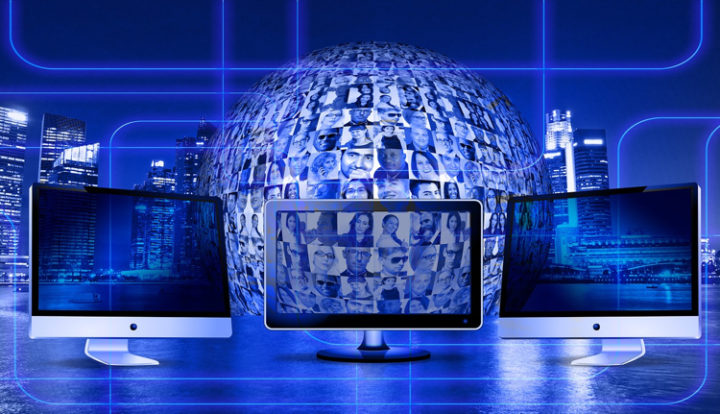Information and communication technologies are leading society into a new paradigm of coexistence, where the virtual is gaining ground every day in all daily activities, including science, politics, e-commerce, tele-education and all the systems of mass persuasion never seen before.
The social distancing and quarantine in the wake of the COVID-19 pandemic is imposing the so-called “new normal”, which definitely implies that the old mental and social structures take on a garb where everything passes through the information highway and new technologies.
The economy, education and social life are all “virtual”. As I have argued in previous articles, the development, application and use of new technologies is engendering new forms of digital slavery, which are part of the economic machinery and generate new modes of production and increasingly refined and sophisticated mechanisms of social adaptation.
Today, under the empire of the Internet, many believe they have a certain power from their “smartphone”, which is also the spearhead to be subjugated. Nothing is more effective for the labour system than its self-reproduction in the psyche and mind of those who sustain it with their labour power and “the sweat of their brow”, i.e., with the energy of their own lives.
In Peru today, there is increasing talk of “telework”, “virtual work”, “remote work” and “on-line work”. While it is true that the Internet facilitates communication and allows many to “work from home”, there is another side to the coin. But it is also clear that technology is now a decisive factor in the perpetuation of a system based on objective subjugation, but with a strong charge of mental control. This was already visible with the so-called “mass culture” proposed by the rise of radio and television.
In this sense, modern consumer workers, under the dictates of the labour market and digital consumerism, are driven in the totality of their lives by a kind of “remote control” and far from recognising and breaking their alien determination, they constitute without doubt and “hidden in plain sight”, the new slavery of the 21st century.
It seems that the enslavement of the mind and thus of human behaviour reaches irreversible levels, because of the mental and bodily doubling that acts mercilessly on its victims to prevent them from rebelling against an inherently inhuman and exploitative social order.
Those of us who question these modes of slavery will continue to struggle for the formation of a global consciousness to counteract and end all forms of economic exploitation, political oppression, social discrimination and human alienation.
But labour systems are counterbalanced by the demands of a consumer society, now increasingly monetised through electronic money and new digital currencies such as bitcoins. The pressure to buy is strong. The message seems to be: “Buy and be happy”. And if you can’t afford to buy, you are marginalised.
There is a very strong socio-cultural and social pressure to buy. One of the growing markets is that of new information and communication technologies. And mobile telephony is tantamount to connection to the world. Staying up to date in communication is essential to be able to make decisions. But devices are also being renewed at a dizzying pace, which accelerates the obsolescence of “novelties”. What is new today will be a useless artefact tomorrow, a museum piece.
It seems that they want to inoculate us with the idea that having a latest generation phone means being in tune with today’s world and especially being able to access the most popular social networks on the Internet: Facebook, Instagram, TikTok, YouTube, WhatsApp, among many others. There are massive downloads of music, videos and other applications, for example to find a safe taxi, among other “apps”.
And now – in the wake of the pandemic – teleconferencing and even digital social gatherings and ceremonies via the screen are booming.
There is aggressive marketing to convince various sectors to buy into this wave, even with the utopia of false leaderships, groups or “collectives”, but in the end they all succumb to the system.
The human being at a new crossroads, with the risk of an idiotisation driven by “popularity rankings”. It is a paradox: many people go out of their way for a “like” or a “like on Facebook”, putting their history and privacy in the hands of the powerful companies that manage social networks.
From a phone in our hands, we have access to travel the world, navigating the almost infinite universe of the Internet, where there are websites for information and entertainment, and especially powerful search engines for information, now with “cloud” services for storing photos and files. On the other hand, hackers commit crimes using the vulnerability of the system.
It is a consumer society, where commercial exchanges dominate the scene, the act of buying seems to be becoming the raison d’être of the system. The current pressure to produce and sell smartphones is very strong.
It is well known that human society is becoming more and more digital, and this phenomenon is affecting even the economic, social and cultural level, in various fields such as medicine, architecture, industry, science and art. We are on the information highway, travelling at full speed in cyberspace. Do we know where we are going?












